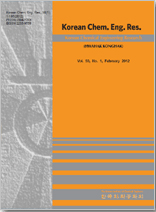Overall
- Language
- korean
- Conflict of Interest
- In relation to this article, we declare that there is no conflict of interest.
- Publication history
-
Received September 1, 2023
Revised October 9, 2023
Accepted October 11, 2023
Available online November 1, 2023
-
 This is an Open-Access article distributed under the terms of the Creative Commons Attribution Non-Commercial License (http://creativecommons.org/licenses/bync/3.0) which permits
unrestricted non-commercial use, distribution, and reproduction in any medium, provided the original work is properly cited.
This is an Open-Access article distributed under the terms of the Creative Commons Attribution Non-Commercial License (http://creativecommons.org/licenses/bync/3.0) which permits
unrestricted non-commercial use, distribution, and reproduction in any medium, provided the original work is properly cited.
Most Read
안전성과 경제성이 개선된 수소충전소
Hydrogen Refueling Stations Improving Safety and Economic Feasibility
https://doi.org/10.9713/kcer.2023.61.4.611
 Download PDF
Download PDF
Abstract
전 세계에서 수소자동차 충전의 기초로 사용되는 SAE J2601의 내용과 충전 프로토콜의 목적과 개념을 조사하
고, 우리나라의 프로토콜 관련 연구 내용을 조사하였다. 그리고, 우리나라에서 개발한 수소 충전 성능평가 장비의
구성 요소와 수소충전소의 성능과 안전을 평가할 수 있는 방법에 대해 검토하고, 현재 국내에서 운영하고 있는 수
소충전소에 대해 현장 적용을 실시하였다. 또한, 국내에서 운영 중인 수소충전소에서 수집한 데이터를 이용하여 경
제성 분석을 하였다. 수소충전소의 안전성과 경제성을 확보하기 위해서는 프로토콜을 만족하여야 하며, 프로토콜
을 만족하기 위해서는 충전온도, 충전압력, 충전 유량이 안전한 범위 내에서 제어되고 있는지 평가하는 것이 필요
하다.
The purpose of the refueling protocol and the contents of SAE J2601, which is used as the basis for
hydrogen vehicles refueling around the world, were investigated, and research contents related to domestic protocols
were also investigated. In addition, the components of the hydrogen refueling performance evaluation device developed
in Korea and the method for evaluating the performance and safety of hydrogen refueling stations were reviewed. And,
the result were analyzed by applying it to the hydrogen refueling stations currently operating in Korea. In addition, an
economic feasibility analysis was conducted using data collected from domestic hydrogen refueling stations. In order to
secure the safety and economy of a hydrogen refueling station, the protocol must be satisfied, and in order to satisfy the protocol, it is necessary to evaluate whether the refueling temperature, refueling pressure, and refueling flow are
controlled within a safe range.
References
Industry and Energy, Korea(2019).
2. Korea Gas Safety Corporation, Development Plan of Hydrogen
refueling station Performance and Safety Evaluation Technology(
2019).
3. Hajime Fukumoto, “Fueling protocol and Technology for Cell
Vechicle,” JARI Research Journal, Japan(2013. 6).
4. Jung, Y. H., “Development Status of Hydrogen Fueling Protocol
for International Standards,” Journal of Research Institute for
Engineering & Technology, (2021).
5. SAE J2601 (Light Gas Hydrogen Fuel Supply Standard), Society
of Automotive Engineers, SAE. (2014).
6. SAE J2799 (Standard for Communication Between Hydrogen
Motor Vehicles and Charging Stations), Society of Automotive
Engineers, SAE. (2014).
7. Appended Table 5 of the Enforcement Rules of the High Pressure
Gas Safety Control Act (Facilities, Technology and Inspection
Standards for Charging High Pressure Gas Vehicles), Ministry of
Trade, Industry and Energy, Korea (2022).
8. KGS FP216 (Facilities, Technology and Inspection Code for Fuel
Vehicles Refueling by Type of on-site Hydorgen Production), Ministry
of Trade, Industry and Energy, Korea (2022).
9. Comprehensive hydrogen safety management measures, Ministry
of Trade, Industry and Energy, December, Korea (2019).
10. Korea Gas Safety Corporation, Final report on the development
of hydrogen refueling station performance and safety evaluation
technology (2022).
11. Mirae EHS-code Research Institute, “Proof of hydrogen charging
system technology development to reduce hydrogen bus charging
time by 1/2 and more than double tube trailer transportation
capacity,” Final report (2021).
12. Mirae EHS-code Research Institute, standard design guidelines
Korean Chem. Eng. Res., Vol. 61, No. 4, November, 2023
for hydrogen refueling stations, H2KOREA (2018).
13. Kang, B. W., Kim, T. H. and Lee, T. H., “Analysis of Costs for a
Hydrogen Refueling Station in Korea,” Journal of Hydrogen and
New Energy, Korea, 261-262(2016).
14. Kang, B. M., Kang, Y. T., Lee, S. H., Kim, N. S., Yi, K. E., Park,
M. J., Jeong, C. H. and Jeong, D.-W., “Analysis of Hydrogen
Sales Volume in Changwon,” Journal of Hydrogen and New
Energy, Korea, 359-360(2019).
15. Kim, J. W., Lee, T. H. and Choi, J. W., “Current Status of Standardization
of ISO TC197,” Journal of Hydrogen and New
Energy, Korea, 247-248, 252(2016).
16. Kim, S. H., Yoo, Y. D. and Park, H. M., “Economic Analysis
Program Development for Assessment of Hydrogen Production,
Storage/Delivery, and Utilization Technologies,” Journal of
Hydrogen and New Energy, Korea, 610-611(2022).
17. Kim, M. S., Jeon, S. T. and Jyung, T. Y., “Analysis of Hydrogen
Sales Data at Hydrogen Charging Stations,” Journal of Hydrogen
and New Energy, Korea, 250, 254(2023).
18. Kwon, O. J., Jo, H. J., Chung, H. H. and Myong, K. J., “Analysis
and Modeling of Hydrogen Sales at Hydrogen Filling Stations,”
The transaction of The Korean Society of Automotive Engineers,
Korea, 98-99(2019).

